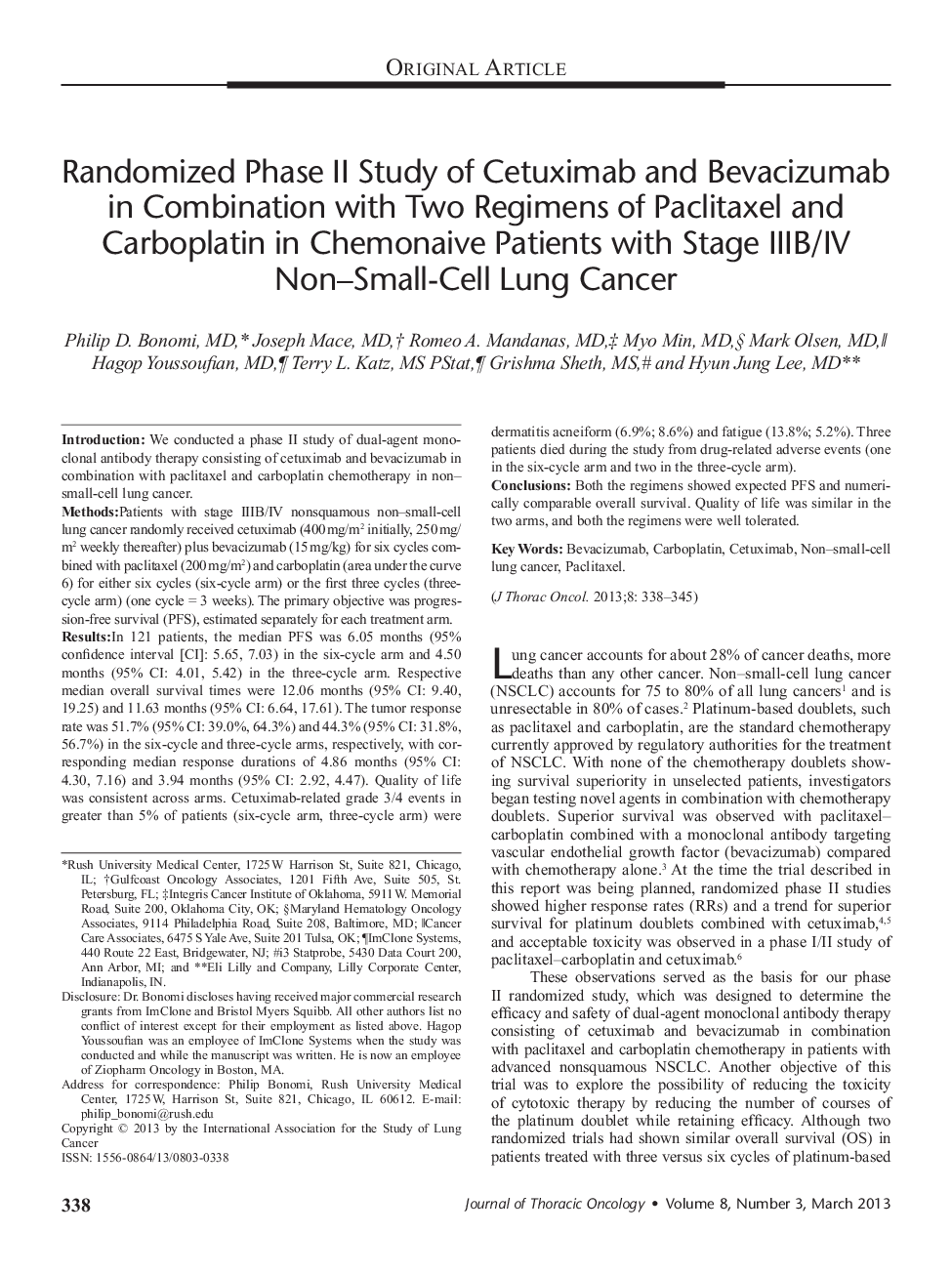| Article ID | Journal | Published Year | Pages | File Type |
|---|---|---|---|---|
| 3990079 | Journal of Thoracic Oncology | 2013 | 8 Pages |
IntroductionWe conducted a phase II study of dual-agent monoclonal antibody therapy consisting of cetuximab and bevacizumab in combination with paclitaxel and carboplatin chemotherapy in non–small-cell lung cancer.MethodsPatients with stage IIIB/IV nonsquamous non–small-cell lung cancer randomly received cetuximab (400 mg/m2 initially, 250 mg/m2 weekly thereafter) plus bevacizumab (15 mg/kg) for six cycles combined with paclitaxel (200 mg/m2) and carboplatin (area under the curve 6) for either six cycles (six-cycle arm) or the first three cycles (three-cycle arm) (one cycle = 3 weeks). The primary objective was progression-free survival (PFS), estimated separately for each treatment arm.ResultsIn 121 patients, the median PFS was 6.05 months (95% confidence interval [CI]: 5.65, 7.03) in the six-cycle arm and 4.50 months (95% CI: 4.01, 5.42) in the three-cycle arm. Respective median overall survival times were 12.06 months (95% CI: 9.40, 19.25) and 11.63 months (95% CI: 6.64, 17.61). The tumor response rate was 51.7% (95% CI: 39.0%, 64.3%) and 44.3% (95% CI: 31.8%, 56.7%) in the six-cycle and three-cycle arms, respectively, with corresponding median response durations of 4.86 months (95% CI: 4.30, 7.16) and 3.94 months (95% CI: 2.92, 4.47). Quality of life was consistent across arms. Cetuximab-related grade 3/4 events in greater than 5% of patients (six-cycle arm, three-cycle arm) were dermatitis acneiform (6.9%; 8.6%) and fatigue (13.8%; 5.2%). Three patients died during the study from drug-related adverse events (one in the six-cycle arm and two in the three-cycle arm).ConclusionsBoth the regimens showed expected PFS and numerically comparable overall survival. Quality of life was similar in the two arms, and both the regimens were well tolerated.
